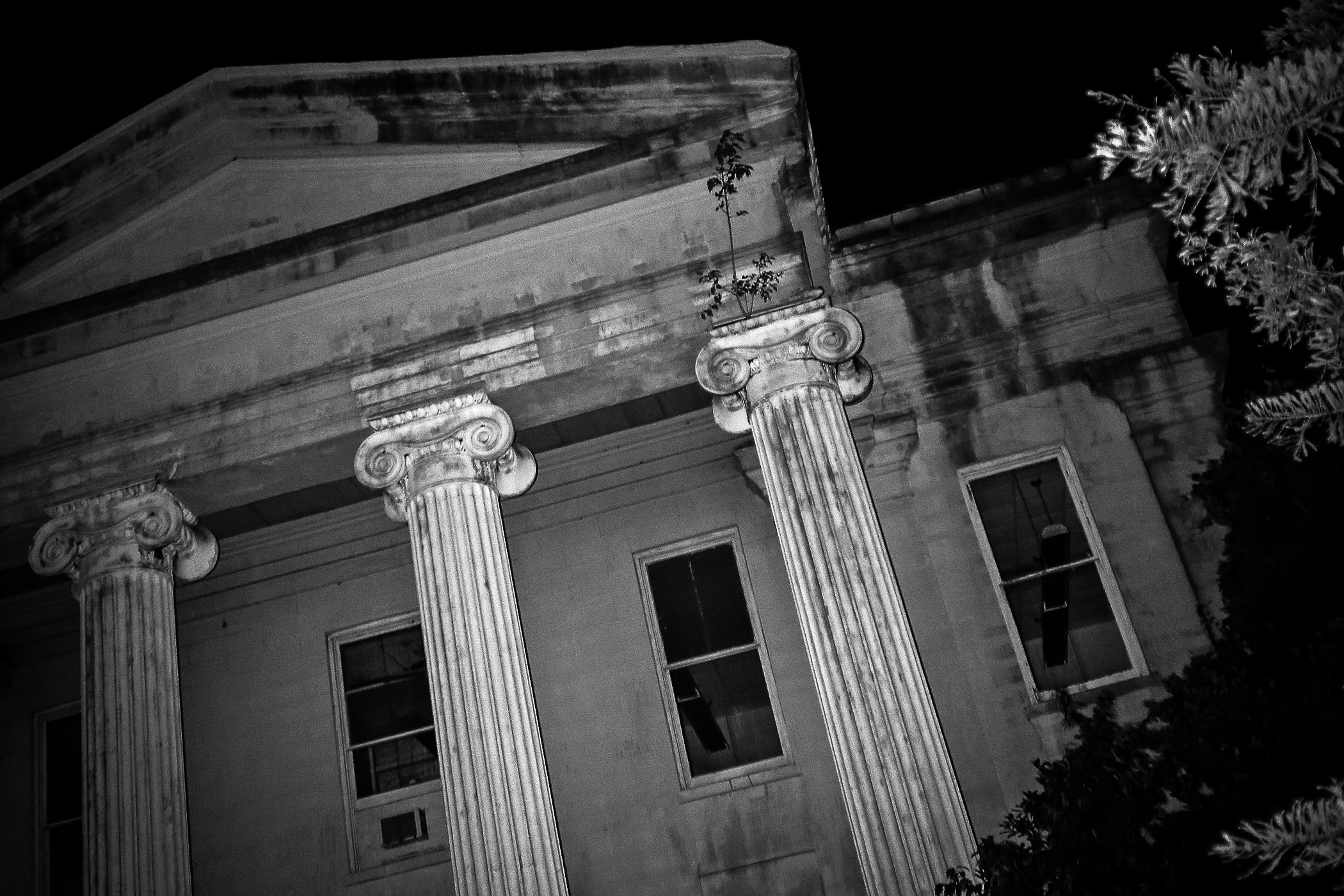A startling headline greeted New Orleanians in the final days of the 19th century: “Real Ghost Story: The Old Carrollton Jail is Said to be Haunted.” The ghostly tales didn’t waft out of the drunk tank nor were they screamed from a padded cell; The witnesses to these otherworldly events were “nine peculiarly levelheaded and unimaginative men – members of the police force.” The October 21, 1899, edition of the New Orleans Times-Democrat went on to trumpet:
“Many Police Officers Tell of Unaccountable Things”
“Doorman Foster Says He Met His Dead Sergeant”
“Sergeant Clifton Describes the Antics of Bewitched Furniture”
The Deathly Gallows
The two-story Jefferson Parish Prison, called Carrollton Jail by the locals, stood at Hampson and Short Streets behind the Carrollton Courthouse. At the time, Carrollton was still part of Jefferson Parish.
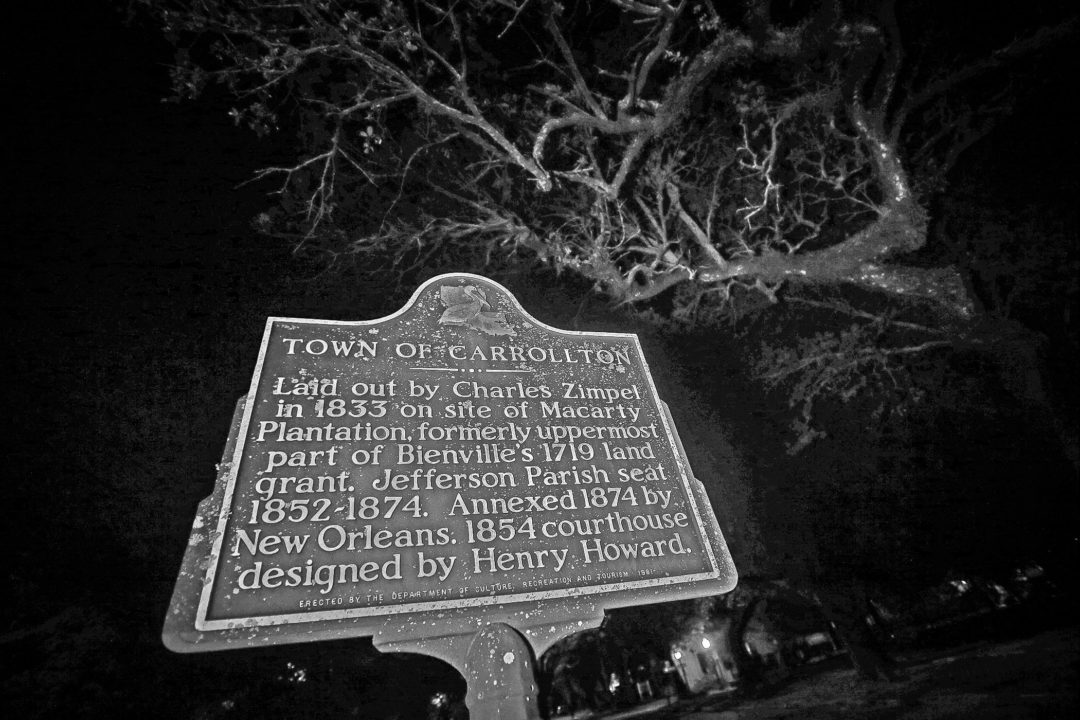
The bland brick jail building was a dull contrast to the stately Greek Revival courthouse next door. The complex was built in 1854, the same year that public executions were banned in New Orleans, driving the executions into the courtyards of prisons. There were gallows in the Carrollton Jail’s courtyard “upon which many a man was hanged” according to the Times-Democrat.
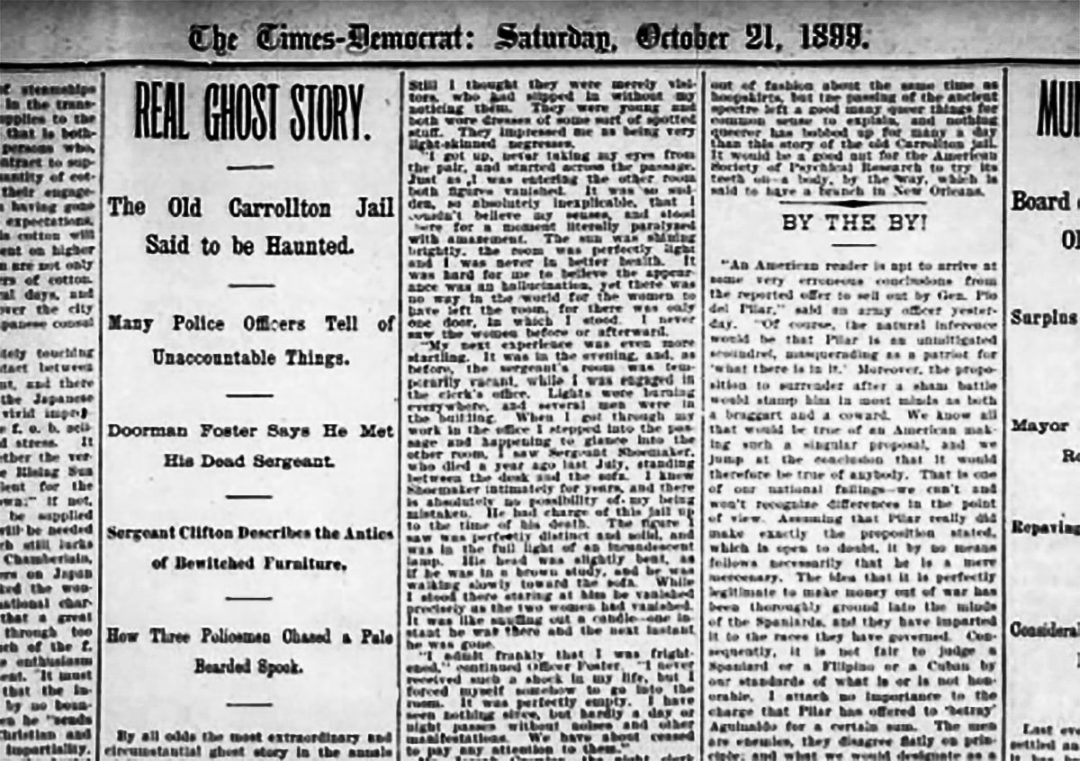
Even if you didn’t have a date with the gallows, the prison was reputedly a horrible place to find yourself, with suicides common and disease and atrocities running amok. A bit of 19th-century frontier justice was also apparently not unknown. Two men who had killed and dismembered a girl were strung up by an angry mob in the jail’s courtyard. Another story tells of a husband caught for the murder of his wife. He had tried to dispose of her body by dissolving it in lye and turning what was left into soap. Either outraged cops or an angry mob (maybe both) beat the man to death before he could be tried, but as he lay dying against a wall in the jail, he swore to avenge himself.
“Explain it, I can’t.”
The 1899 newspaper story about the prison recounts the story of a sofa pushed up against a wall, some say the very wall where the murderous husband died, that would violently eject anyone who tried to lie down on it. Sgt. William Clifton who ran what was now called the Ninth Precinct Jail confirmed the tales of the possessed wall, telling a reporter, “I can tell what happened easy enough but explain it, I can’t.”
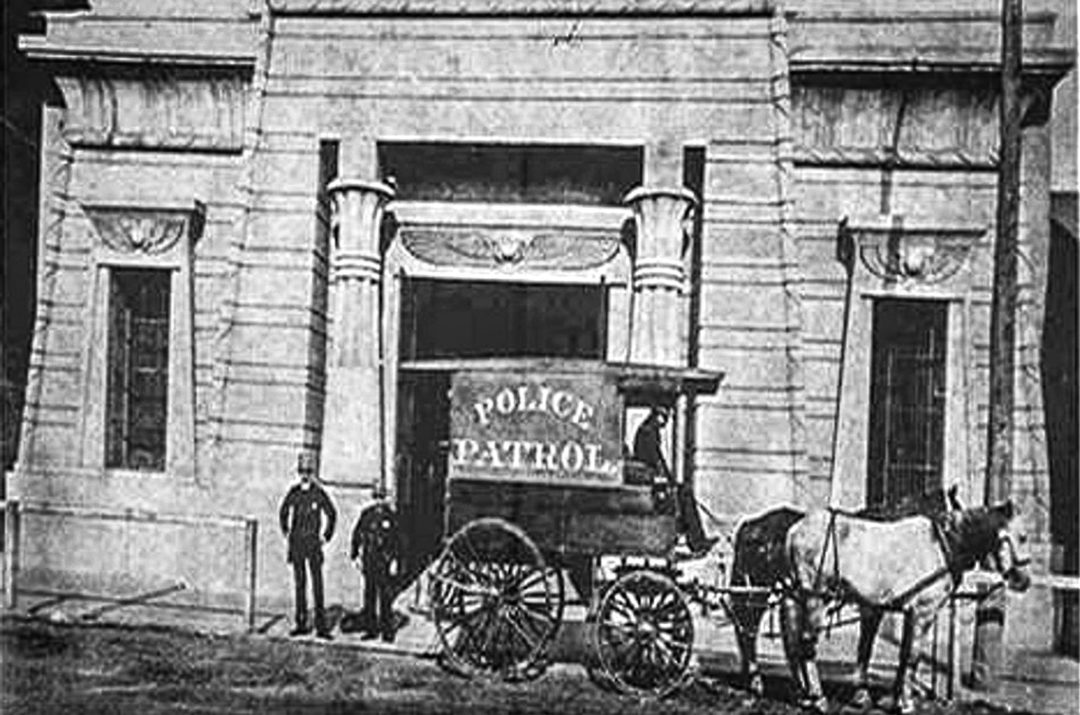
Clifton noted how the sofa would be pushed several feet from the wall for no reason and how a portrait of General Beauregard fell from the wall and shattered. A female acquaintance leaning against the wall while speaking to Clifton was suddenly pushed away. Curious, she leaned against it again only to be shoved back anew. Officers who repeated the act were also forcefully propelled away as if by a pair of invisible hands.
MORE: So you think your NOLA pad is haunted? Here’s some things you can get to check
An Officer Foster reported seeing two women waiting at for Sgt. Clifton at his desk, only when he approached them, they vanished. Foster told the reporter, “It was so sudden, so absolutely inexplicable, that I couldn’t believe my senses, and stood there for a moment literally paralyzed with amazement.” The stories say these were a pair of women guilty of killing their common lover by cutting out his liver and that they were frequent ghostly visitors to the jail. Foster goes on to tell another tale of meeting Sgt. Shoemaker in an office at the jail on a summer’s evening in July…. a year after Shoemaker had died. The former sergeant, well known to Foster, vanished without a word, just like the two women had.
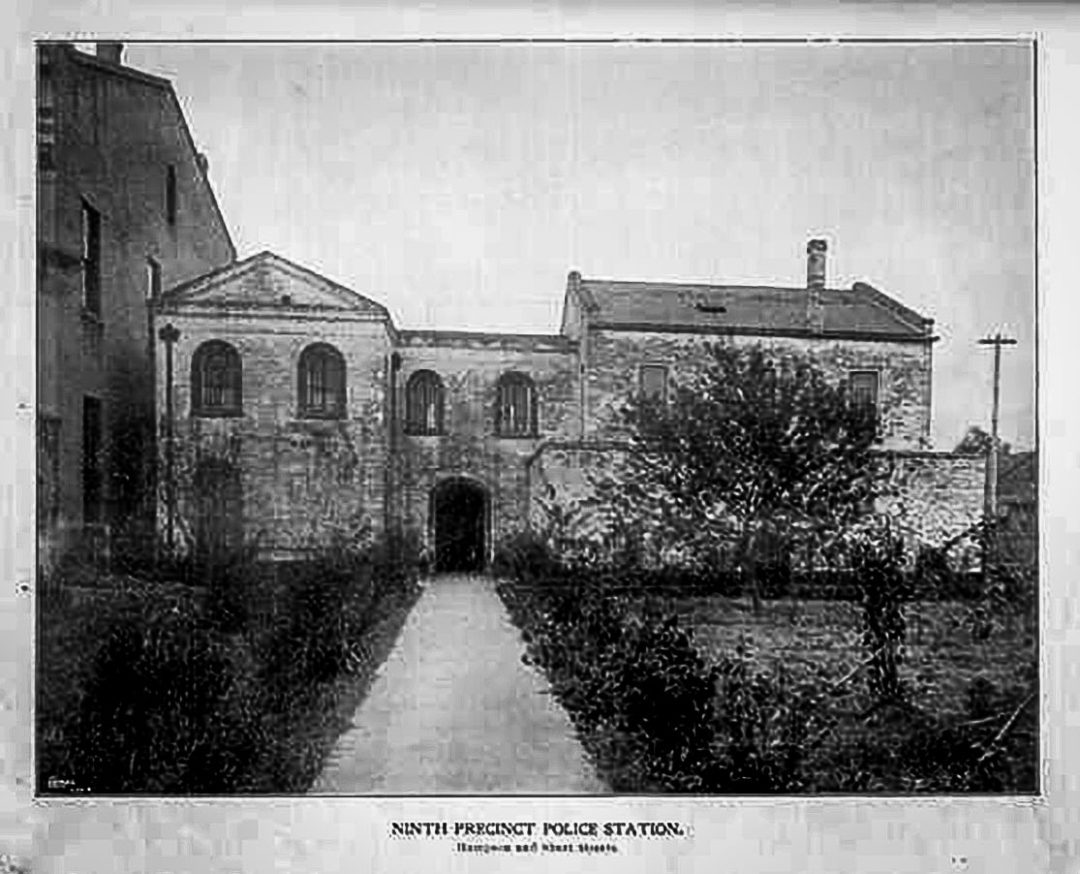
Officers assigned to the “Old Ninth” often heard mysterious footsteps and dodged objects thrown by invisible hands. A portrait of Admiral Dewey was seen to spin on its nail. Three officers witnessed a ghostly, pale bearded man drift by them and disappear. An Officer Crowley said he was throttled by an unseen entity in a courtroom that previously was a bank of four holding cells for prisoners awaiting execution. While many of the cops stated they didn’t believe in ghosts, they did admit whatever they had experienced defied explanation.
Strange happenings were also visited upon the prisoners. Some reported cold hands on their faces in the night, blankets ripped from their bodies, and late-night brawls between ghosts occurring in their cells. Cell number three was said to be especially haunted. The story was that years before in cell three, three prisoners who had committed heinously violent crimes (one chopped up his parents, another drowned four babies) all killed each other in a bloody overnight brawl. Their violence continued to echo for eternity, leaving many prisoners of cell three bloody and afraid after a night’s stay.
The prison today
After New Orleans annexed Carrollton in 1874, the courthouse was closed and later became the McDonogh 23 School which operated on the spot until 1950. The prison was closed in 1932 after parents complained that the prisoners housed next to the school were rowdy and unpleasant. It turns out that when you are shut up for extended periods of time with a small group of people YOU CAN GO JUST A LITTLE CRAZY…
(Deep breath. Stay focused on writing. Ignore quarantined son playing harmonica badly in the next room… AGAIN!)
When the dilapidated jail was finally torn down in 1937, workmen reported seeing ghostly shapes rising from the dust of destruction, some with the broken necks and bulging eyes of the executed, others escaping wraith-like from the bricks that confined them in life and in death.
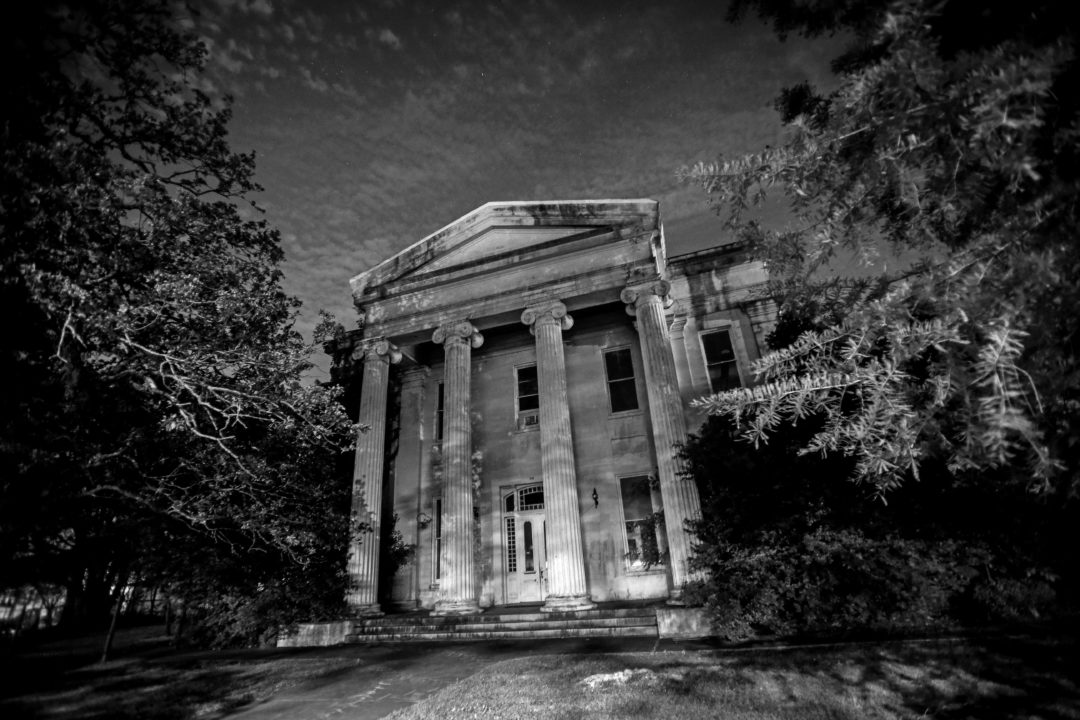
The Carrollton Courthouse continued to serve after McDonogh 23 closed, subsequently housing Ben Franklin High School, Lusher Middle School and Audubon Charter School before being vacated in 2013. The Orleans Parish School Board sold the building at auction in 2017 for $4.7 million to Houston developers of senior living centers.
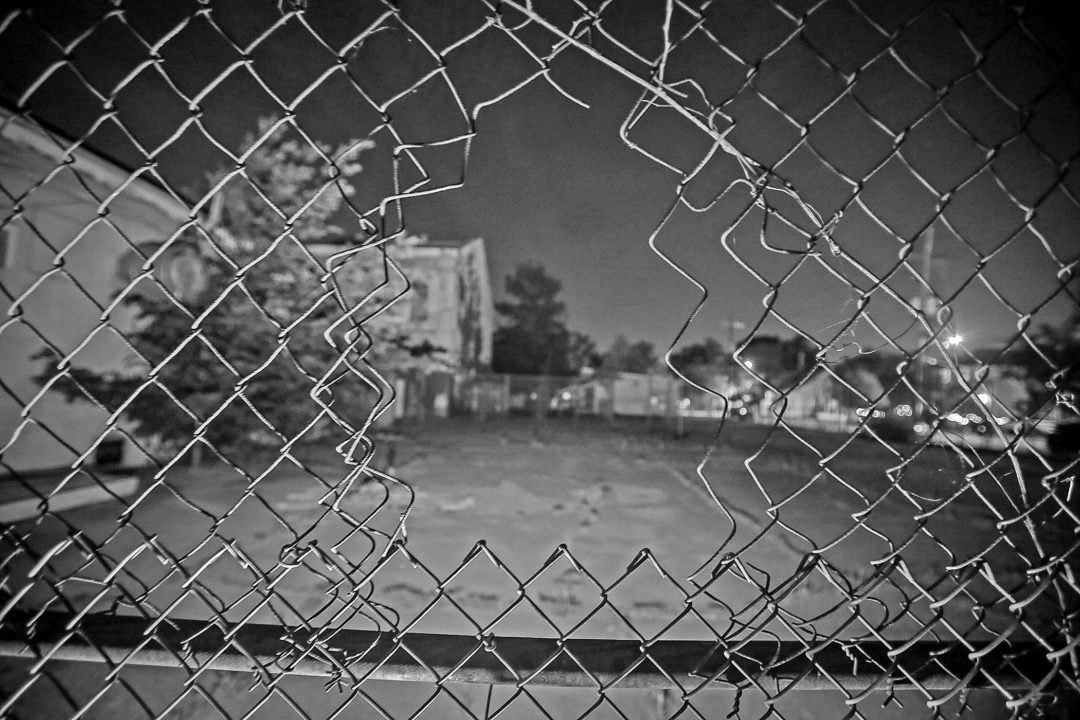
Today, the courthouse still stands empty while behind it, weeds break through the cracked concrete playground where the courtyard gallows once stood, surrounded by the brick walls of the prison that evil could not escape.
References
deLavigne, Jeanne. Ghost Stories of Old New Orleans. Louisiana State University Press: Baton Rouge, LA, 1946
Kendall, John. The History of New Orleans. The Lewis Publishing Company: Chicago/New York, 1922
Morris, Robert. Landmark status for Carrollton Courthouse may be decided next month. Uptown Messenger, May 11, 2018. https://uptownmessenger.com/2018/05/landmark-status-for-carrollton-courthouse-may-be-decided-next-month/ Accessed April 2020
Stuart, Bonnye. Haunted New Orleans: Southern Spirits, Garden District Ghosts, And Vampire Venues. Globe Pequot: Guilford, CT, 2012
Times-Democrat newspaper. Real Ghost Story. October 21, 1899.
Tulane University School of Architecture. The Carrollton Courthouse: A Public Space. https://carrolltoncourthouse.files.wordpress.com/2015/10/2016-carrollton-courthouse-presentation-doc.pdf Accessed April 2020

